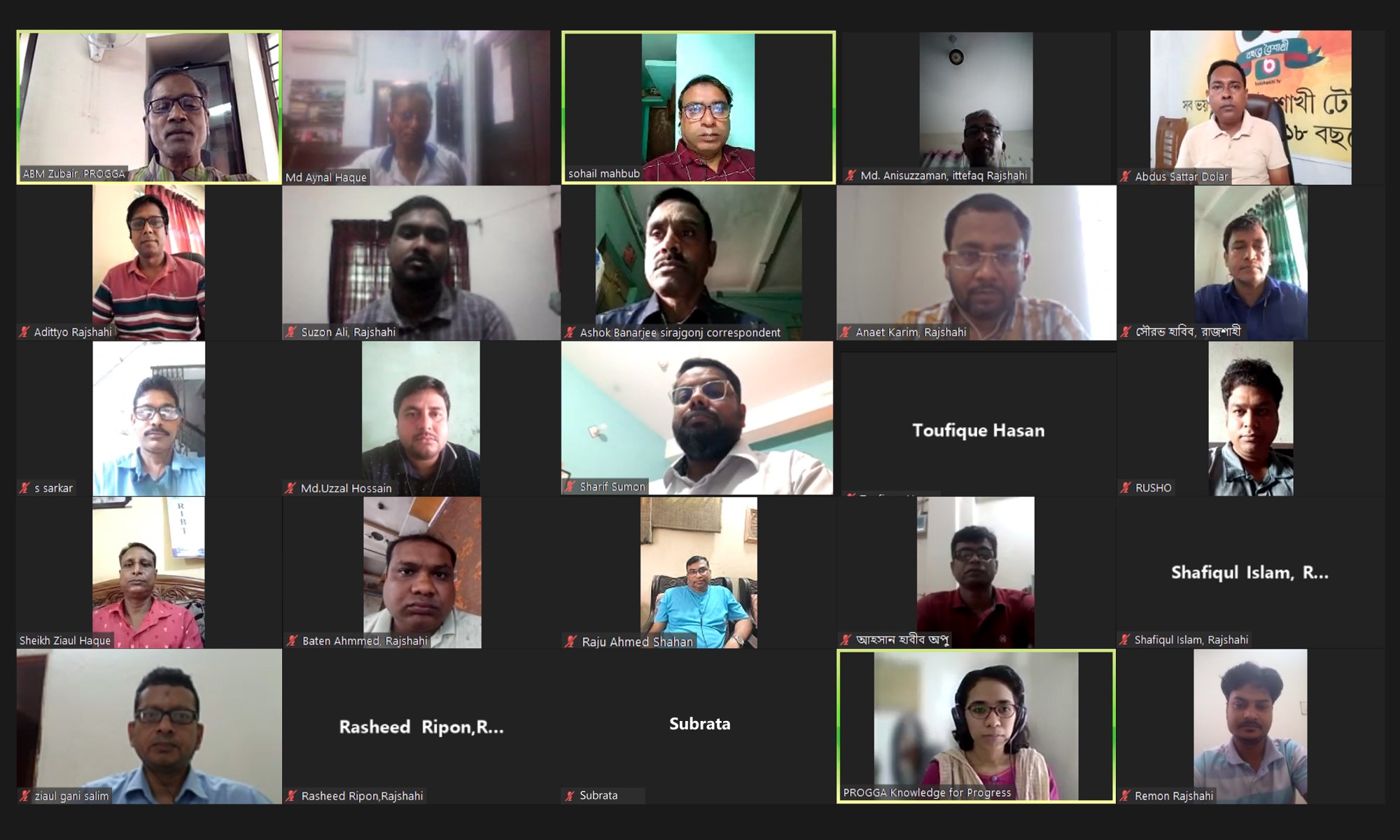
RAJSHAHI, Oct 12, 2024 (BSS) - Access to hypertensive medicines can be the crucial means of reducing risks of various non communicable diseases (NCD), particularly hypertension, at the grassroots level.
The prevalence of hypertension, a major risk factor for various non-communicable diseases, is increasing consistently in the country.
Despite taking medicine, only 15 percent people with hypertension have been able to keep their condition under control.
Experts and media personnel came up with the observation while sharing their views at a virtual workshop for journalists titled “Hypertension Control in Bangladesh: Progress and Way Forward” today.
Research and advocacy organization PROGGA (Knowledge for Progress) organized the divisional level workshop supported by Global Health Advocacy Incubator (GHAI).
Twenty-three journalists working in print, electronic and online media from different districts under Rajshahi division joined the workshop.
The meeting was told that the provision of free medicine has already commenced to combat the prevalence of hypertension. But, ensuring its availability in all healthcare facilities at the grassroots level is essential to effectively reduce hypertension-related non-communicable diseases and deaths.
At the same time, sustainable funding is required for an uninterrupted supply of the medicine.
With PROGGA Executive Director ABM Zubair in the chair, the virtual workshop was addressed, among others, by PROGGA Director Shahedul Alam and Coordinator Sadia Galiba Prova.
While presenting her keynote paper, Sadia Galiba Prova said one in every four adults in Bangladesh suffers from hypertension and it is one of the major risk factors for various non-communicable diseases including heart diseases, stroke, cancer, kidney diseases, respiratory diseases and diabetes.
Shahedul Alam also presented a keynote paper saying ensuring the availability of anti-hypertensive medicine at the grassroots level along with increased allocation to effectively address hypertension can prevent heart attacks and strokes, ultimately saving lives.
In his remarks, ABM Zubair urged journalists to work as a pressure group through filing news reports on the availability of anti-hypertensive medicines at grassroots level government health facilities and community clinics to control hypertension.